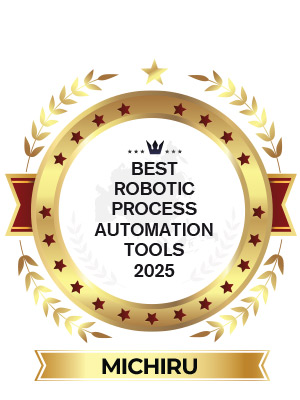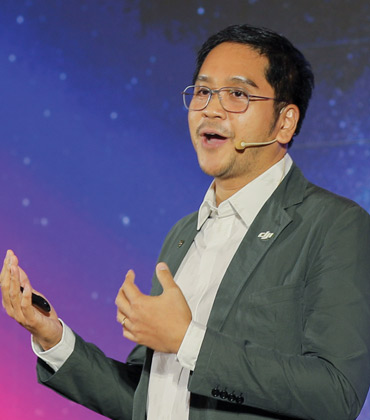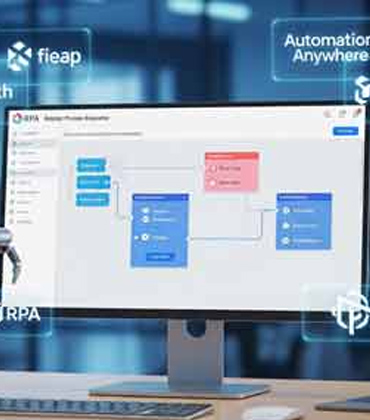THANK YOU FOR SUBSCRIBING
Across Japan, labor shortages, rising costs, and growing competition are making it difficult for many small and mid-sized businesses to rely on manual data entry and repetitive paperwork. Business owners are looking for solutions their teams can actually use. They want simple and affordable tools that do not require extensive technical knowledge to operate. Founded in 2018, MICHIRU has quickly grown into one of Japan’s leading robotic process automation (RPA) providers. It now works with more than 1,300 organizations across manufacturing, retail, media, and professional services. The company’s mission is straightforward: give SMEs automation tools that are simple to use, affordable, and built to take the weight of repetitive tasks off their teams right away. “Our goal has always been to create technology that serves people, not the other way around. We want businesses of any size or technical ability to see real improvements in productivity and quality of life through automation,” says Kohei Yuba, CEO. User-Friendly Automation at a Disruptive Price MICHIRU’s strength is that it’s easy to use. A lot of automation tools need coding knowledge or take ages to set up. The company’s software works the way people already use their computers, with simple actions like clicking, typing, copying, and pasting. Even a small shop owner with hardly any tech background can start using it without trouble. Logistics teams can handle bulk tasks on their own instead of waiting around for IT. Customers often say the interface feels natural and that help is easy to get when they hit a snag. The company’s in-house development strategy allows for a proprietary, lightweight automation engine, keeping resources low while enhancing speed and reliability. MICHIRU RPA is priced at roughly one- third the market rate to allow smaller businesses a risk-free way to experiment and benefit from automation. The affordability has boosted uptake among organizations previously deterred by high costs. Customers receive detailed onboarding, including training and workflow design, with guidance during free trial periods and continued support post-implementation. The assistance comes through multiple channels, like chat, email, and online meetings, to help clients quickly solve challenges and maximize daily value. MICHIRU also provides advanced OCR and image recognition, so the platform works with practically any software environment, from modern online tools to legacy systems.
Top Compliance Solutions Provider
Peak Compliance Associates (PCA) supports financial institutions in Hong Kong and Singapore achieve regulatory excellence. With core expertise in licensing and ongoing compliance advisory, PCA enables financial institutions to thrive in a complex regulatory landscape. “We believe that compliance should be a springboard for growth, not a roadblock,” says Alex Esson, founder and CEO. PCA follows a proactive engagement model with tailored strategies to address immediate and long-term requirements of clients. Regulatory Licensing Support Services PCA’s licensing support service streamlines the end to end processes involved in licensing for financial institutions. Obtaining the required license is critical in starting a business so PCA focuses on speed and efficiency to ensure that clients can begin operations as quickly as possible. Leveraging its extensive experience in regulatory requirements, PCA offers clear and concise guidance on licensing procedures, prepares applications that anticipate and address regulators' concerns, and maintains unmatched response times to clients and regulators. This proactive approach minimizes delays, accelerates the licensing process, and enhances client satisfaction, leading to referrals and long-term partnerships.
Top Digital Transformation Company
Established in 2002, Systronics has become the backbone of innovation for public and private organizations aiming to outpace the competition in today’s digital-first world. Renowned for its security and surveillance solutions expertise, the Thai firm crafts tailored technology frameworks that empower businesses to thrive with agility and resilience in an evolving market. Recognizing that true digital transformation demands a holistic approach, Systronics provides a comprehensive suite of end-to-end services, guiding organizations through every phase of their journey. From designing strategic roadmaps to executing flawless implementations and delivering ongoing support, Systronics ensures clients establish a solid foundation for sustainable growth.
CXO INSIGHTS

Why Leveraging Technology Partners is Essential in Building Successful Digital Ecosystems
Eric Cheung, Group Transformation Director, Tricor Group

Transforming Engineering through Data Science
Agus Jamaludin, Data Scientist Lead, Petrosea

Transforming Business Operations with Robotic Process Automation
Simon So, CMGR, MCMI, Regional Head of Digital Solutions, Richemont Asia Pacifi

The Rise of Hyper Automation
Erdenezaya Batnasan, Head of IT End-User Support Service Department, Khan Bank

A Vision for the Future: Automation, Robotics, and the Smart Factory
Joe Tilli, State Industrial Automation Sales Manager, Lawrence & Hanson
IN FOCUS
The Human-AI Interface: RPA's Transformative Impact on Work in APAC
The digital transformation sweeping across the APAC region is redefining work through a growing human-AI interface, where human intellect and machine efficiency converge to unlock unprecedented value. Within this, Robotic Process Automation (RPA) has emerged not as a harbinger of human replacement, but as a foundational technology that powerfully augments the capabilities of the workforce. It acts as a crucial bridge, enabling a symbiotic partnership that allows employees to transcend mundane tasks and engage in more strategic, creative, and impactful work. This shift is redefining productivity and unlocking new levels of human potential across the diverse economies of the APAC region.
Data Governance as a Service: The New Mandate for APAC's Compliance Consulting Firms
Digitalization across the Asia-Pacific (APAC) region has created a dual reality for businesses: unprecedented opportunity and unparalleled risk. As data becomes the lifeblood of the modern enterprise, its proper management has shifted from an IT-centric task to a core business imperative. Navigating the intricate web of evolving data protection regulations, ensuring data quality, and leveraging data for strategic advantage requires a specialized skill set that many organizations lack internally.
EDITORIAL
RPA’s Role in the Intelligent Enterprise
Across the APAC region, organizations are turning to Robotic Process Automation (RPA) not just to reduce costs, but to build more resilient, agile, and intelligent operations. Once seen as a tactical fix for repetitive tasks, RPA is now a strategic pillar in digital transformation roadmaps helping businesses respond faster to customer needs, regulatory demands, and competitive shifts. This special edition of APAC CIOOutlook highlights the tools, strategies, and leadership shaping the future of automation. Today’s best-in-class RPA platforms are not just rule engines—they're integrated ecosystems combining AI, low-code flexibility, and enterprise-grade governance. But adoption still comes with challenges. Indra Hidayatullah, Data Management & Analytics Division Head at PT. Bank Tabungan Negara, offers a clear-eyed perspective on what it really takes to implement RPA at scale. From employee upskilling and detailed documentation to robust governance frameworks, he outlines five critical prerequisites for getting RPA right. His message is clear: without structured foundations, automation efforts risk fragmentation and failure. Elsewhere in this issue, we feature a diverse range of success stories from banking and logistics to public sector workflows showcasing how RPA is unlocking measurable gains in accuracy, speed, and compliance. The tools featured here are not just efficient they are built for scale and designed for the evolving enterprise. As businesses look ahead to 2025 and beyond, it’s clear that automation must evolve too. Which is why we close with the forward-looking perspective of Kain Chow, General Manager, Technology & Transformation, at New World Development. For Chow, the next chapter of RPA lies in convergence with artificial intelligence, with co-pilot-enabled workflows, and with a new expectation of human-like interaction. RPA is no longer about bots replacing humans. It's about enabling humans to work smarter, at scale.









